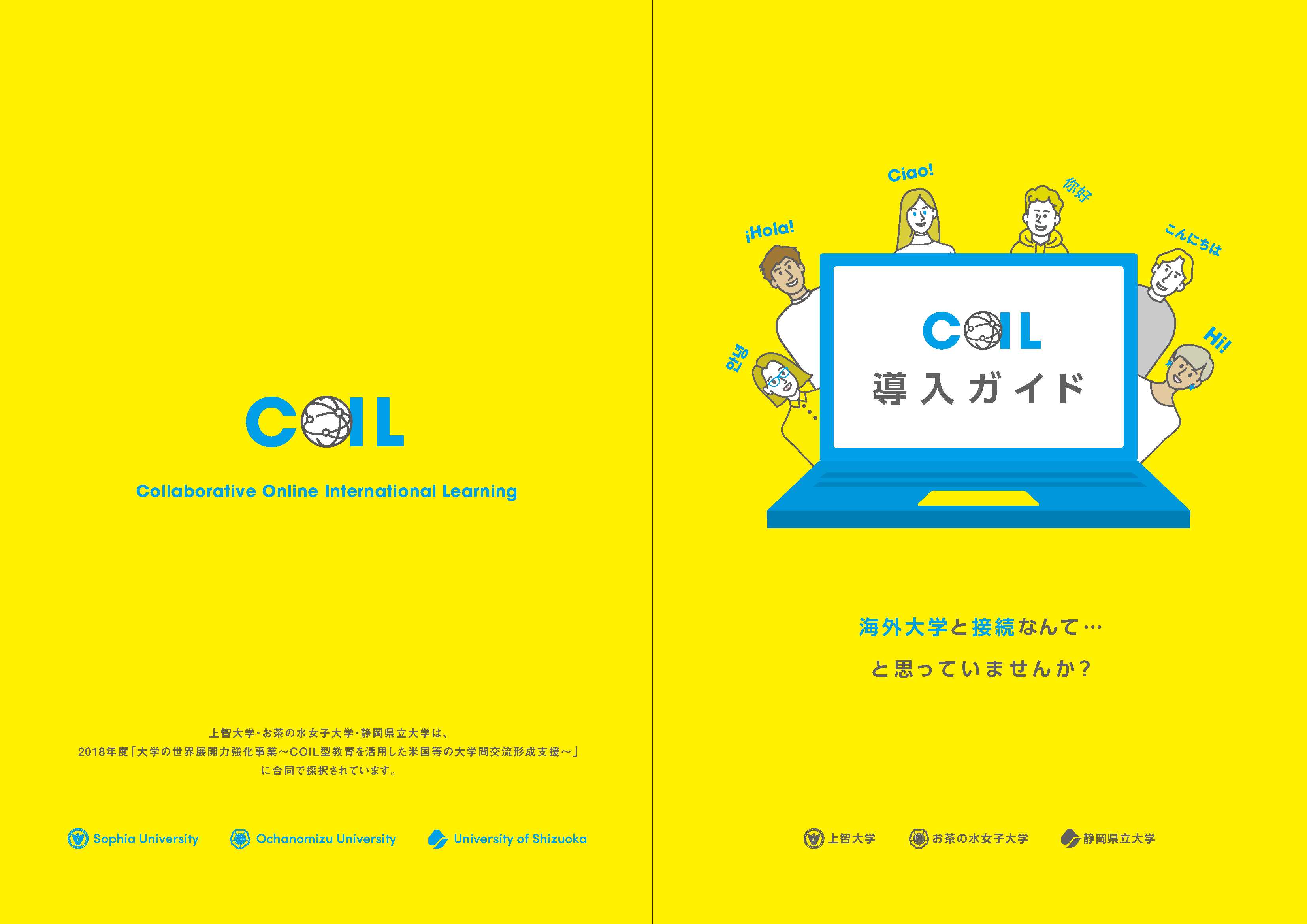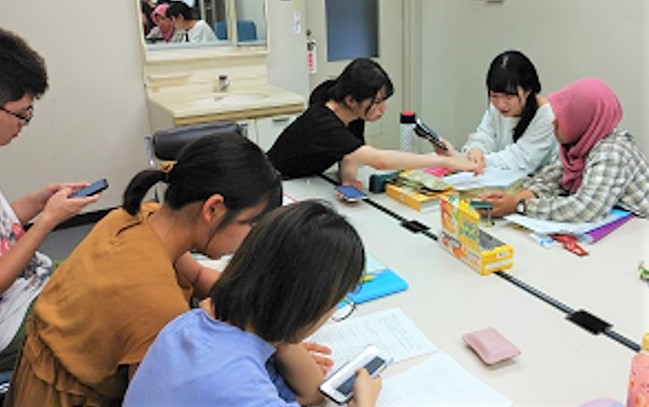What is COIL
▶If you would like to see the Japanese version, please follow this link.https://youtu.be/si_OHhOyBjc
(5 minutes and 34 seconds)
(5 minutes and 34 seconds)

"▶Please download here."
COIL is an acronym for Collaborative Online International Learning and refers to an international interactive teaching method that utilizes the internet. Students can study collaboratively with students at foreign universities without going abroad by utilizing information and communication technology tools (ICT) and virtually collaborating on projects in various fields.
“US-COIL”is an abbreviation of COIL in the University of Shizuoka (US).
Purpose of Introducing COIL
The Purpose of introducing US-COIL is to promote multi-layered international higher education in Japan and the US as well as in third countries and to improve the global mobility of students (e.g., sending Japanese exchange students abroad and hosting international students) through binational university collaborations by focusing on distance learning that utilizes online education (the COIL system) and exchange programs.
Initiatives by the Three Japanese Partner Universities.
- Providing global educational opportunities to students.
- Promotion of multi-layered student exchanges that utilize the resources of partner universities and local communities.
- Contribution to reducing educational disparities in developing countries through the expansion of international collaborative online learning programs to third countries.
Online Education
Online education is a novel type of education not simply because it has introduced new equipment and communication technology but because it ensures the expansion of educational opportunities in modern society where inequalities are increasing in various ways. It makes it possible to study from multiple angles through collaborative learning for those who would otherwise not be able to study collaboratively in the traditional form of education.
Significance of Introducing Online Education.
- It provides educational opportunities to students who have difficulty in taking advantage of the opportunities to study abroad due to financial reasons and the curriculum of their university courses.
- It provides students with diverse cultural experiences to acquire multifaceted understanding and thinking abilities to deal with their tasks through collaborative learning.
- It enables students to have effective learning in the preparation class for studying abroad with the use of images and two-way communication with a partner university abroad.



